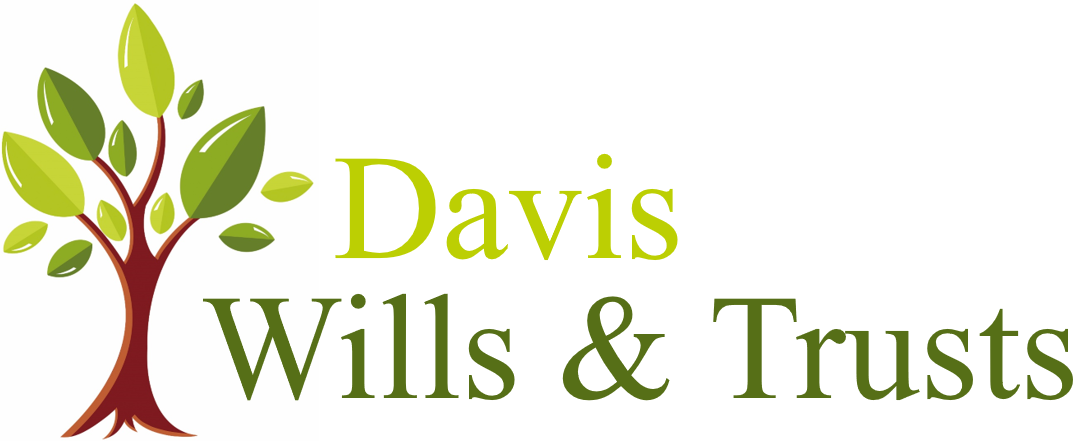
What is Estate Planning?
Believe it or not, you have an estate!
In fact, nearly everyone does.
Your estate is comprised of everything you own —
your home, car, checking and savings accounts,
401(k), IRA, life insurance, furniture, and
personal possessions.

Creating a “simple will” does not get the job done.
A will can only give the court — not your family — the power
to settle your estate.
With a trust, you name a family member, friend or professional to serve as trustee. The trustee has power to distribute your assets without a court process. Your trust will have a detailed plan for who inherits, what they inherit, how they inherit, and when they inherit.
Davis Wills & Trusts can help you create a trust and estate plan that minimizes taxes, legal fees, and court costs.
A good estate plan can and should:
Minimize or eliminate taxes
Include instructions for your care if you become disabled
Name a guardian and trustee for young children
Protect beneficiaries from liability
Pass on your values (education, hard work, beliefs)
Transfer assets without involving the court system
Provide for the transfer or wrap up of your business
Organize your records, correct property titles, make beneficiary designations, and get questions answered:
Would your family know where to find your financial records, ownership titles, and insurance policies if something happened to you?
Davis Wills & Trusts can help you organize your records, update titles and beneficiary designations, and find and correct errors. For example, most people don’t know what wording was used on the title to their home when they purchased it or last refinanced. The differences between "joint tenancy," "community property" or simply "husband and wife" can trigger significant taxes and probate court involvement for your family down the road. Creating a trust solves the problem. What is in an Estate Plan?
Revocable Living Trust
A trust sets out your plan for the
“who, what, when and how”
your assets will be distributed.
“Revocable” means changeable.
You can change your trust anytime.
Our laws respect trusts as a private method of settling an estate instead of using a public, expensive, and long court process called “probate.”
A trust can have one or more special needs trusts
or general needs trusts
for young or adult beneficiaries.
Pour-Over Will
A “pour-over” will
goes together with your trust.
Before computers, people wrote simple wills, but a simple will gives the court system,
not your family,
power to settle your estate.
A “pour-over” will is special.
It has power to transfer assets
to your trust and
serves as a safety net.
Health Care Power of Attorney
A Health Care Power of Attorney names one or more family members, friends or professionals to make critical health care decisions for you
if you have an accident or illness that leaves you unable
to speak for yourself.
A Health Care Power of Attorney often lays out instructions
for the care you would like
to receive in difficult circumstances.
Durable Power of Attorney
A general durable power of attorney names one or more trusted family members, friends or professionals to pay bills and manage your finances
if you have an accident or illness that leaves you unable
to manage on your own.
Some institutions, such as CalPERS, require a “special power of attorney.”
Trust Transfer Deed
Your grant deed is the title document that proves
you own your home.
A trust transfer deed
changes title from you
as an individual or couple,
to you as trustee of your trust.
You own your trust, and
with a trust transfer deed, you own your home under your trust.
This is an essential step in the estate planning process to avoid court and minimize taxes.
Assignments of Assets
“Assignments” transfer assets, such as LLC shares,
family business stock,
employee stock options,
book and patent royalties,
and other special assets.
A general assignment of property brings your belongings in your home and your vehicles into your trust without needing to itemize or go to the DMV.
Our attorneys at Davis Wills & Trusts help you understand all of your options as you think about these decisions. Our job is to guide you and ensure that the estate planning process is easy and rewarding.
Sooner,
not later.
When your time comes
— and it is a “when” not an “if” —
you will want to have a trust in place,
to ensure your family does not have to endure a long, expensive probate court process
to settle your estate.
A good trust and estate plan
can help keep relationships intact
and keep families together in the future.



